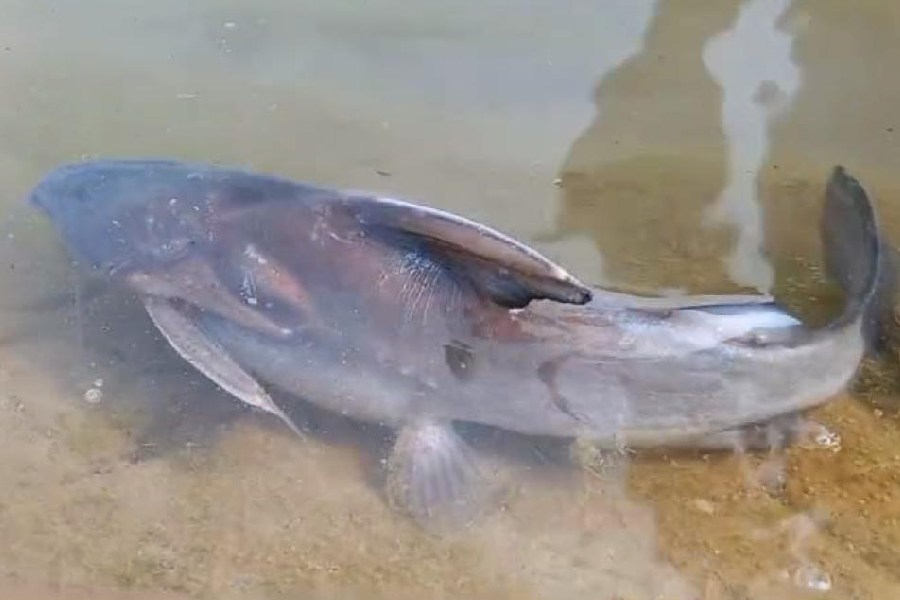Shoals of dead fish were found floating in the Teesta river near Saradapally, close to Jubilee Park on the outskirts of Jalpaiguri town, on Tuesday morning.
The incident has left the residents and environmentalists worried as they suspect poisoning. The district fisheries department has collected samples and will send those for tests.
Govinda Roy, a resident of Saradapally, said that early on Tuesday morning, he noticed an oily sheen on the surface of the river water.
“Something may have been mixed into the water. I don’t know how the fish died, but I saw a thin layer of oil on the water at dawn. I collected around 4kg of dead fish,”
he said.
Among the species that washed up lifeless, were “Boroli, or Barred Boril (Barilius barila), a popular fish found in the Teesta, along with other varieties like “Aar” (long-whiskered catfish), “Shol” (snakehead murrel), “Taki” (spotted snakehead), “Ritha” (bagrid catfish), “Bata” (freshwater minor carp) and “Baim” (zig-zag eel).
Since morning, as people of Saradapally and adjoining areas saw the fish, many gathered to collect those and take them away and many held back, fearing their consumption might lead to health hazards.
Chaitanya Roy, a resident, said: “In this stretch, the water in the Teesta is almost stagnant, which might have led to fish deaths. I saw at least 13 varieties of fish dead
and floating.”
Sources in the district fisheries department said the ideal level of dissolved oxygen in water should be between 5 and 8 milligrams per litre, and a drop can lead to the death
of fish.
“The phenomenon is not unusual during winter when river currents slow down. Overcast weather over the past few days may have contributed to a drop in oxygen levels, leading to natural fish mortality,” said a source.
An official of the department said they were not ruling out the possibility of deliberate poisoning.
“A section of unscrupulous fishermen sometimes mix pesticides or toxic chemicals into the river to kill fish easily. We will conduct tests to find out what led to the incident,” said the official.
On November 28, 2011, the Karala river that flows through Jalpaiguri saw the deaths of 43 fish species after endosulfan, a banned pesticide, was put into the water.
On December 18, 2012, several fish were found dead in the Teesta near Jubilee Park under suspicious circumstances. On October 29, 2023, a case of deliberate poisoning was reported in the Teesta on the outskirts of Jalpaiguri town.
Shama Parveen, the district magistrate, said irrigation and fisheries departments were asked to collect water and fish samples for testing.
“A report has been sought to determine the cause of fish deaths. Based on the report, we will take steps,” she said.
Environmentalists expressed concern at the sight of dead fish in the river. “If fish are being killed illegally, strict action is necessary. Poisoning affects the river’s ecological balance,” said Raja Raut, a green activist based in Jalpaiguri.











